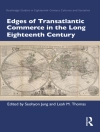This sophisticated book argues that human rights literature both helps the persecuted to cope with their trauma and serves as the foundation for a cosmopolitan ethos of universal civility—a culture without borders. Michael Galchinsky maintains that, no matter how many treaties there are, a rights-respecting world will not truly exist until people everywhere can imagine it. The Modes of Human Rights Literature describes four major forms of human rights literature: protest, testimony, lament, and laughter to reveal how such works give common symbolic forms to widely held sociopolitical emotions.
Tabela de Conteúdo
Preface.- The Dream of a Culture without Borders .- Lament as Transitional Justice.- Laughter and the Subjected Subject.- Towards a Global Civil Culture.- Works Cited.
Sobre o autor
Michael Galchinsky is Professor of English, an affiliate of the Center for Human Rights and Democracy at Georgia State University, and a Fellow at the Yale University Center for Cultural Sociology, USA. He writes on human rights literature, international human rights law, and Jewish studies.












